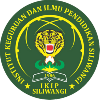West Kalimantan Folktale as a Model of Speaking Performance in Enhancing Students’ Speaking and Soft Skills
DOI:
https://doi.org/10.22460/project.v3i6.p657-663Abstract
The purpose of this study was to enhance students’ speaking performance and soft skills using West Kalimantan folktale “Batu Menangisâ€. The sample of this study was 21 students of Early Childhood Education department, Universitas Muhammadiyah Pontianak. This study used a Classroom Action Research (CAR). The data collection tools were observation sheet of speaking performance and soft skills, video, and questionnaires of students’ perception on the use of drama technique. The study shows significance enhancement on the students speaking performance from 58% in the first cycle to 71%in the second cycle. The students’ soft skills improved markedly from 62% in the first cycle 81%  in the second cycle. Thus, performing drama using West Kalimantan folktale is effective to enhance students’ speaking performance (fluency, comprehension, pronunciation) and soft skills (responsibilities, teamwork, confidence) as it contains authentic materials and fun.
Â
Â
Keywords:Â Â Batu Menangis, Folktale, Enhancement, Soft skills, Speaking performance,.
Â
References
Almond. (2005). Teaching English with drama: how to use drama and plays when teaching - for the professional English language teacher. Modern English Publishing: London.
Brown, H. D. (2007). Teaching by Principles: An Interactive Approach to Language Pedagogy. New York: Pearson Longman.
Doqaruni, V. R. (2014). A Quantitative Action Research on Promoting Confidence in a Foreign Language Classroom: Implications for Second Language Teachers. I.E.: Inquiry in Education, 5(1).
Endraswara, S. (2008). Metodologi Penelitian Sastra. Yogyakarta: CAPS.
Koohang, A., Riley, L., J. Smith, T., & Schreurs, J. (2009). E-Learning and Constructivism: From Theory to Application. Interdisciplinary Journal of E-Skills and Lifelong Learning, 5, 091–109. https://doi.org/10.28945/66
Parel, M. F. & M. J. (2008). English Language Teaching (Methods, Tools & Technique). Jaipur: Sunrise Publishers.
Prochazka, A. (2006). Drama in Modern language Teaching Part 2. Frankfurt: Wien.
Richards, J. C. (2001). Curriculum Development in Language Teaching. New York: Cambridge University Press.
Robles, M. M. (2012). Executive Perceptions of the Top 10 Soft Skills Needed in Today’s Workplace. Business Communication Quarterly, 75(4), 453–465. https://doi.org/10.1177/1080569912460400
Shakir, R. (2009). Soft skills at the Malaysian institutes of higher learning. Asia Pacific Education Review, 10(3), 309–315. https://doi.org/10.1007/s12564-009-9038-8
Tevdovska, E. S. (2016). Integrating soft skills in higher education and the EFL classroom: Knowledge beyond language learning. SEEU Review, 11(2), 95–106. https://doi.org/10.1515/seeur-2015-0031
Tompkins. (2001). Role Playing Simulation. TESL, IV (8), 4.











